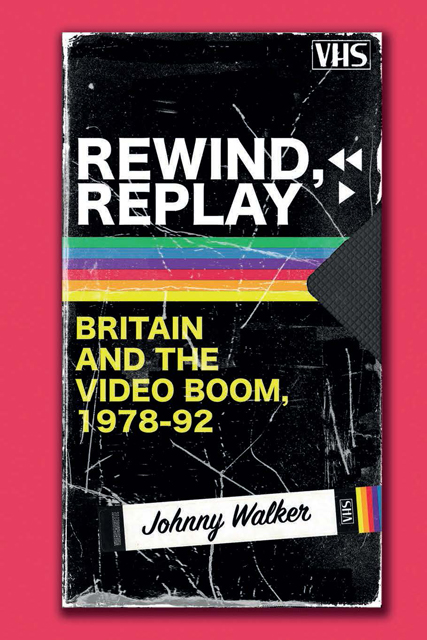Book contents
- Frontmatter
- Contents
- List of Figures
- Acknowledgements
- Introduction: Rewind, Replay
- 1 We’ve Got It Taped
- 2 Shrugging Off the Recession
- 3 Threats and Benefits
- 4 Regulation and Adaptation
- 5 Independent Spirit vs Corporate Muscle
- Conclusion: Video Legacies
- Select Bibliography
- Select Film/TV/Videography
- Select Periodicals
- Index
5 - Independent Spirit vs Corporate Muscle
Published online by Cambridge University Press: 18 November 2022
- Frontmatter
- Contents
- List of Figures
- Acknowledgements
- Introduction: Rewind, Replay
- 1 We’ve Got It Taped
- 2 Shrugging Off the Recession
- 3 Threats and Benefits
- 4 Regulation and Adaptation
- 5 Independent Spirit vs Corporate Muscle
- Conclusion: Video Legacies
- Select Bibliography
- Select Film/TV/Videography
- Select Periodicals
- Index
Summary
In 1985, the chairman of the Video Trade Association (VRA), Derek Mann, wrote an opinion piece that was published in the trade periodical Screen International, addressing the negative public image of video rental outlets in Britain. He argued:
the video industry has no one to blame but itself. The retailers are in many cases apathetic and unconcerned about the need to give the industry a sound and acceptable base. Many of them are frighteningly naïve, particularly in the knowledge of how to run reputable and professional business.
Unfortunately for shop owners, Mann's article reflected the mood of the period. More pervasive than ever was the caricature of independent dealers as cowboys or fly-by-nights, unable to sustain the levels of professionalism required to keep the video business buoyant.
Mann's assertion that the proprietors of said outlets were wholly responsible for the image of video lacks nuance, though his comment about the naivety of (some) shop owners rings true. The opportunities that video had given those new to business earlier in the decade had by the mid-1980s all but dissipated. Many shops were facing financial hardship, with many others already bankrupt. In the wake of the video nasties and the Video Recordings Act (VRA), it was deemed imperative more than ever for shops to reinvent themselves and present video as an attractive consumer activity.
The irony could not have been more self-evident. According to a survey carried out by the British Video Association (BVA) in late 1985, ‘less than 3% of consumers had a spontaneously negative impression of their local video shop’. However, over half of those interviewed admitted to renting less frequently than in 1984. Analysis at the time suggested that the main issues were that the ‘novelty’ of video had worn off for consumers, and that the standard of material being released was not as appealing as it could be. According to BVA chairman David Rozella, the solution to this was for the business to ‘present video as a much more vibrant and exciting industry’. Video shops, it was agreed, would play a pivotal role. It is the purpose of this chapter to examine how.
- Type
- Chapter
- Information
- Rewind, ReplayBritain and the Video Boom, 1978-1992, pp. 173 - 214Publisher: Edinburgh University PressPrint publication year: 2022



